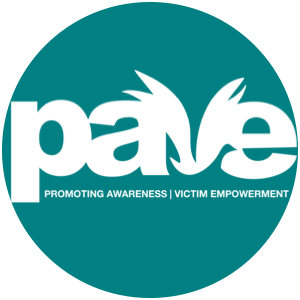International Relations & Gender-Based Violence
Gender inequality is a topic that can be traced throughout history as many men have subjected women to lower statuses. This can be seen from being the figureheads of monarchy or government down to the figurehead of the household. Since society assumed men would fulfill these roles, women often had to deal with being bossed around by men, telling them how to act and what to do. If a woman happened to go against her husband, father, or really any other man’s wishes, they often reprimanded her verbally or physically. Luckily in many parts of the world, this type of behavior is now unacceptable and punishable by law. Yet, there is an estimated one in three women that have been a victim of violence through intimate partner violence (UN Women, 2018). Not to mention, some countries face these issues more often than often for multiple reasons.
Economics: Most women who face gender-based violence around the globe tend to be in countries of lower economic status. Having a low income is frustrating for many individuals as they have to work harder to survive and provide for their families. However, this is no excuse to take the frustrations out on someone else. Yet, in developing countries, because the poverty rates are so high, this issue occurs more often than not.
Lack of legislation: Another part of the problem that coincides with economics is the fact that there is little legislation in some parts of the world in relation to gender-based violence. Gender inequality is still seen in many different laws for basic rights around the globe. While in America for women it may be easy to take for granted the right to vote, but one must remind themselves that in a country that prides itself on free rights, women have only had the right to vote for just over 100 years. Meanwhile, in Saudi Arabia, women have only been able to vote for six years (NDI). Additionally, women in Saudi Arabia have also just gained the ability to attend educational institutions based on their own decisions and not through the force of a male figure. While many wonderful organizations work with individuals in different places to gain rights for them, more work is still needing to be done.
Cultural Customs: Many parts of patriarchal societies include traditions and customs of religions or cultures. While we must respect the cultural and religious beliefs of others, we also must look at traditions and rules that may cause harm to individuals both mentally and physically. For example, forced marriages of children for money purposes can be extremely damaging to the young individual's life. Another example is genital mutilation that occurs in many different countries which is believed to be done for multiple reasons that include the belief that this practice is a step into womanhood (Unicef, 2019).
Although these issues still exist, we can see that gender-based violence awareness has increased tremendously due to different forms of media from news outlets to social media. With the click of a button, one can share their story via a video, Tweet, or picture post. With movements such as the #MeToo Movement, many women have been able to share their personal experiences with sexual abuse. By empowering women to share their experiences, we are able to understand the different issues going on not only directly around us, but also around the globe. Through education and a bit of brainstorming, we can fight these issues through different methods. A few ways in which we can help those both abroad and at home include:
Education: As human beings, we learn each and every day new facts or skills. By learning about this important topic we can learn how the situations come about, measures we can take to help others out of situations, and how to communicate with those who may have already been affected by domestic and sexual violence.
Donations: In many poverty stricken areas of the world, women are in vulnerable situations with little money or supplies to live. One way to give back is to donate items, clothing, or money to shelters and organizations that help these women.
Activism: After learning about this issue and taking action on one’s own, it may be a good idea to get involved and get others involved. Many nonprofit organizations, including PAVE, create social media campaigns to get others involved in fighting against sexual and domestic violence. Make sure to find survivor-centered organizations and try to take part in their events and encourage friends to join with you! The more supporters there are, the more powerful the fight is.
Whether your best friend is a survivor of violence or a young girl 5,000 miles away from you, these women are facing issues that should be prevented. We at PAVE stand with survivors and are here to support you every step of the way.
Written By PAVE’s Fall Outreach Intern, Kelli Green
Sources:
https://www.unicef.org/stories/what-you-need-know-about-female-genital-mutilation
https://www.ndi.org/middle-east-and-north-africa/saudi-arabia
https://www.unwomen.org/en/what-we-do/ending-violence-against-women/facts-and-figures
